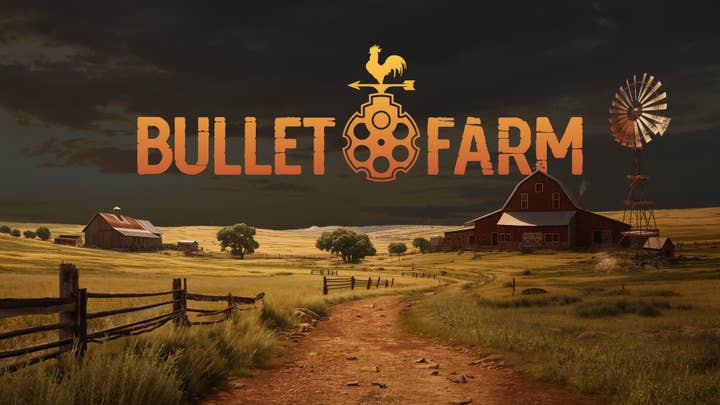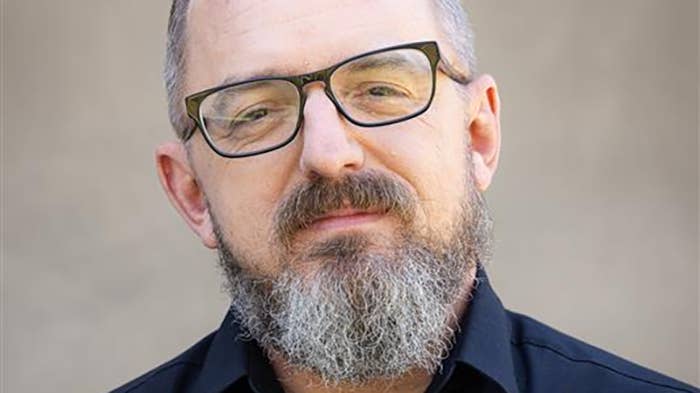Call of Duty's David Vonderhaar on stepping out of his comfort zone with new studio BulletFarm
The Treyarch veteran tells us why he joined NetEase's latest AAA studio and what he plans to do differently
Sign up for the GI Daily here to get the biggest news straight to your inbox
In August 2023, David Vonderhaar announced he was leaving Treyarch, the Activision studio behind the Call of Duty: Black Ops series, after 18 years working on the blockbuster shooter franchise. Today, he is head of BulletFarm, a new AAA studio within NetEase — but that wasn't his original plan.
"Honestly, leaving to start a studio wasn't really a consideration at all," Vonderhaar tells GamesIndustry.biz. "I was just going to leave at some point. I was going to retire, and take my RV and drive around the country. That was my master plan."
Instead, he finds himself at the helm of the ninth Western studio formed by NetEase since the start of 2022, and the latest to be targeting the AAA market. When asked why he chose to work for the China-based publisher, he pointed to the prospect of more creative independence and freedom on BulletFarm's debut game.
"Those two things are really important," he says. "You can have the best idea in the world for a game, but if your structure isn't set up for that, you'll never get that game made.
"Many new studios don't make it, but does that mean we shouldn't try? I feel like that means we should try harder"
"I was really, really impressed by the NetEase ecosystem, the totality of everything behind you that supports you. You're making the studio, you're setting the values for your studio, you're deciding the game you want to make, and then they're just there to help. That's it. It seemed a little too good to be true, so I did a lot of research, called a lot of people, spoke to other studio heads, and it's true."
This, he notes, is in stark contrast to how he's used to working, i.e. on big games in major franchises with thousands of developers and a new entry every year. Working on something different gives him — and the other people on his team, such as creative director Chris Cowell, another Treyarch veteran — a chance to "take all the lessons that we've learned from all those years in that system, and apply them in a different way."
"When you get too big, when you get so big and so popular and so much money at stake, it just gets complicated," Vonderhaar continues. "The best experiences I've ever had making games were the smaller things that got made inside of those larger games. That was what was really fun, that's when I was alive and the team were alive, that's when you got the innovation, that's when people would want to work extra hours. They would want to do things. They would do so because they wanted to, not because they had to or were told to.
"That's how you should make games. That's the fun part. Can you make a whole game that way? We're going to find out."
We've seen an assortment of AAA developers branch out on their own at the head of a new studio in recent years, often choosing the route of full independence. While Vonderhaar recognises that plenty of people have managed this successfully, it's not a prospect he was keen on.
"Having VCs, or bootstrapping it with your own cash, or other ways... those are even more complicated. It's hard enough to start a studio that's fully funded and backed. And then, if you're trying to do that, and you have to raise the money, I'm not a venture capitalist. What do I know about that? I'm a game maker. [laughs] So, for me personally, it just makes more sense."

In the announcement for BulletFarm, Vonderhaar said this new venture involved him "stepping out of [his] comfort zone." When we press him for more context, he says the answer is threefold.
First, he's still used to that larger structure with more than 2,000 people working across multiple studios to ship a new Call of Duty game every year. At BulletFarm, there are currently just 15 people, so he's learning how to work in small teams again.
Secondly, he's not just a key member of the studio, he's running it.
"Running a studio is not the same thing as designing one part of a video game, or running the team that designs one part of a video game, or running one studio that designs one part of a larger game," he says. "You have to think about everything all the time. It's a completely different mental challenge for me. So, that's definitely out of my comfort zone."
Finally, there's the game itself. Neither BulletFarm nor NetEase have offered much in the way of detail beyond that it's a first-person game set in an original world, with a focus on co-operative gameplay. Making something other than Call of Duty is part of the challenge that Vonderhaar is now embracing.
"I thought I would just make Call of Duty, and then I would retire and that would be the end of my career. And I think I'd be pretty happy with that. That's not a bad career, right? But when you get to be 18 years of making a game that's franchised in that way, that goes on that long, what you can do to that game gets harder and harder to do, because it's so big and popular for a reason.
"You can't demolish the things that people like about it. You can only do so much different within something that big. I want the whole game to be different, not just a little bit of this and a little bit of that, this game mode or that mode, right?"
BulletFarm is going to spend the next year prototyping the game, but Vonderhaar is aware that a lot will change in that time — another reason the studio isn't discussing its debut title in detail yet.
"I think we have a really clear picture of what the game will be in our heads. But if I tell you what that is, and I'm wrong, then a year from now, it's not going to make any sense to anybody. So, yeah, I believe it's going to work or we wouldn't be doing it, right? But it's so soon. It's a co-op first-person shooter, and it's not going to be about killing a lot of people all the time. It's more nuanced than that. It's more personal than that. It's more innovative than that."
"Running a studio is not the same thing as designing one part of a video game, or running one studio that designs part of a larger game. It's a completely different mental challenge for me"
In terms of how the studio plans to grow, Vonderhaar says he's following the loose guidelines of "the five, fifteen and fifty rule": start with a core team of around five people, grow to fifteen people for prototyping, then scale up to fifty or more for full development. Even then, the studio head wants to grow cautiously.
"I just don't want to be so large that I don't know your name. That's where things can get. You can have people working in your department whose names you don't know. I want a studio where I actually know everybody's names."
Even when proceeding cautiously, there's risk. The past year has been incredibly difficult for the games industry — and new AAA studios are in no way immune from this, from the struggles of Immortals of Aveum to the closure of Deviation Games. Vonderhaar is aware of the pressure, but is in no way deterred.
"I feel like the pressure should be on the people who are not trying to innovate, not the people that are trying to," he says. "If you end up in a world of entertainment where you have choices between one, two, or three, you're never going to get anything different, you're never going to see anything new.
"I think everyone who took a crack at this, they're the real heroes of that story. If you boil entertainment into these giant franchises – this doesn't just happen in games, it happens across the movies, everywhere, the consolidation of the big IPs — someone's going to crack through the noise of that. And you're kind of seeing a little bit of it now with Helldivers 2, for example.
"So, yes, many people don't make it, but does that mean we shouldn't try? I feel like that means we should try harder."
Sign up for the GI Daily here to get the biggest news straight to your inbox

